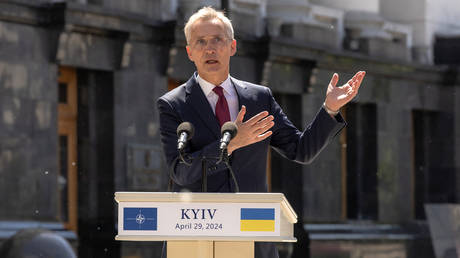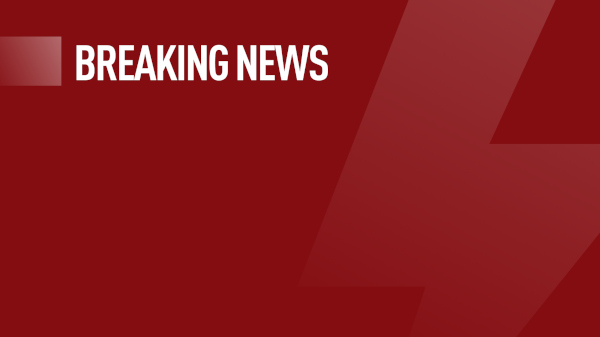
The bloc chief’s proposal is “a bit confusing,” an unnamed Eastern European official has told the outlet
NATO members are seeking clarification from the NATO secretary general on his five-year plan to provide Ukraine with €100 billion ($108 billion) in military aid amid the conflict with Russia, Politico has reported.
Jens Stoltenberg floated the idea in early April, insisting that the US-led defense alliance needed to “shift the dynamics” of its support for Kiev and assure “reliable and predictable security assistance to Ukraine for the long haul.”
The secretary general said he expected member states to make a decision on his proposal during the NATO summit in Washington on July 9-11.
However, in recent weeks, even some of Ukraine’s closest allies in Europe have become “more reserved” about the idea, the news website said in an article on Sunday. Governments want Stoltenberg to explain where and how such a large sum of money will be obtained.
“The plan is a bit confusing,” an unnamed Eastern European official told Politico. According to the source, member states will ask the secretary general to reveal more details during a meeting of NATO foreign ministers in Prague on Thursday and Friday.
Another official, also representing an unspecified country strongly backing Ukraine, said he “won’t be surprised” if the €100 billion figure is ultimately revised. However, he stressed that NATO would still need to show “concrete” support for Kiev.
Several other officials have confirmed to Politico that talks on the proposed scheme are ongoing, with a focus on the size of the aid package and on how the money could be raised.
The outlet pointed to doubts as to whether key European NATO members such as France and Germany will back the secretary general’s suggestion.
NATO diplomats earlier told Reuters that Stoltenberg’s plan was in part aimed at making sure that American aid to Ukraine continues even if Donald Trump, who previously hinted that he could stop funding Kiev, becomes US president again.
Under the proposal, NATO would also take over some coordination work from a US-led coalition known as the Ramstein group, which has been in charge of distributing Western aid to Ukraine.
Throughout the conflict between Moscow and Kiev, NATO as an organization has restricted itself to non-lethal aid to Ukraine, over fears of escalation. Most of the bloc’s members have provided weapons to Kiev, but on a bilateral basis.
READ MORE: Italy rebukes NATO call for more strikes on Russia
Moscow has warned repeatedly that deliveries of weapons to Kiev by the US and its allies will merely prolong the fighting without changing the outcome, and increase the risk of a direct confrontation between Russia and NATO.




